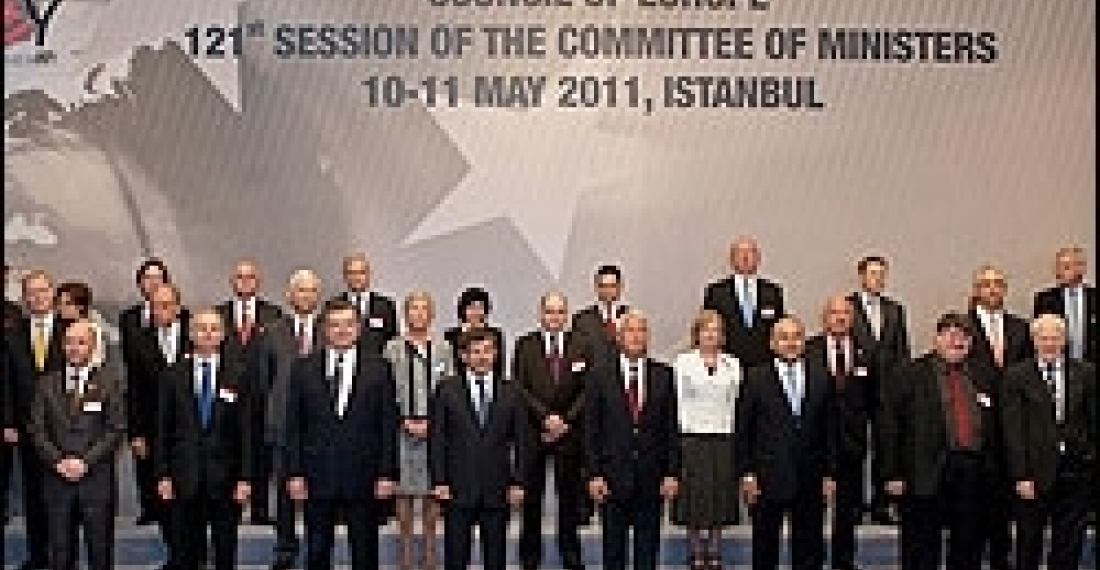A diplomatic spat between Russia and Georgia over their conflict in 2008 left Council of Europe ministers meeting in Istanbul unable to release a joint declaration Wednesday on the results of the talks, according to the Turkish Newspaper Hurriyet Daily News.
Georgian and Russian ministers differed strongly on the wording applied to their five-day war in August 2008 over the breakaway regions of South Ossetia and Abkhazia. Diplomatic sources told the Hürriyet Daily News that the spat had been ongoing since drafting of the declaration began at a previous meeting in Strasbourg.
Turkey, the outgoing chair of the ministers’ committee, and its successor, Ukraine, worked to find a way around the crisis by issuing the draft declaration, which does not mention the disputed matter, Wednesday as a presidential statement. Neither Georgia nor Russia signed this statement.
The draft text prepared in Strasbourg, which the council’s deputy ministers approved, said, in part: “We remain concerned that persisting unresolved conflicts affecting certain parts of our continent put at risk the security, unity and democratic stability of member states and deprive populations concerned of their fundamental human rights and freedoms.”
Georgia, however, sought to include a mention in the text of “military conflict,” a move opposed by the Russian delegation, which proposed substitute wording referring to “the situation in Georgia.” Georgia did not drop its insistence on its demand, bringing it to the Istanbul meeting, where Turkish Foreign Minister Ahmet Davutoğlu met Georgian Deputy Foreign Minister David Jalagania in an unsuccessful attempt to convince his delegation to let the matter drop.
Following a delay due to Davutoğlu and Jalagania’s meeting, Turkey handed over the rotating presidency of the Council of Europe’s Ministerial Committee to Ukraine. Turkey assumed the presidency of the committee for a six-month term on Nov. 10.
In a joint press conference with Ukrainian Foreign Minister Kostyantyn Hryshchenko and Council of Europe Secretary-General Thorbjorn Jagland, Davutoğlu said that Turkey worked during its presidency to establish and monitor standards in the Council of Europe.
Hryshchenko thanked Turkey for its performance in the last six months and said Ukraine would look to Turkey’s example and would continue to make efforts on works initiated by Turkey, including crucial efforts to establish values around human rights and the supremacy of law.
“Our priorities during the rotating presidency will be the preservation of the rights of children, human rights and the preservation of the supremacy of laws and strengthening local democracies,” the Ukrainian foreign minister said.
Turkey also worked to boost efforts for democracy in North Africa, Davutoğlu said, efforts that Jagland cited when noting that the Venice Commission had advised Tunisia on preparations for its upcoming elections. The body is also involved in electoral processes in Morocco and Egypt, he added.
“We try to contribute to them, but we will not impose anything on them,” Jagland said.
source: Hurriyet Daily News
photo: Council of Europe Ministers at the end of their meeting in Istanbul (photo courtesy of the Council of Europe)







